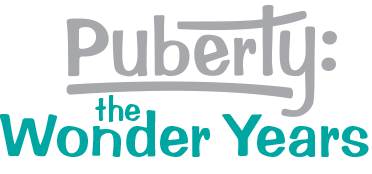What Is Natural and Healthy?
Children gather information about everything as they move through childhood; this includes natural and healthy sexual exploration. Children are learning about bodies, gender roles and behaviors, and relationships. Thus, between 40 and 85% of children will engage in some form of sexual behavior by age 13. Childhood curiosity that results in voluntary sexual exploration between children of similar age, size, and development is normal. Games like “playing doctor,” “playing house,” and “spin the bottle” are ways for children to learn about themselves and others. This is part of typical childhood sexual development.
This can make adults uncomfortable if they aren’t expecting this as a normal part of childhood. It can also make adults afraid that children have been sexually abused if they are not alert to the difference between natural, typical behaviors and problematic behaviors that might be warning signs of trauma. It is important for adults to respond calmly and avoid shaming children when they are discovered in sexual exploration.
Since most adults want to believe that children are asexual and innocent, it has been difficult for researchers to study healthy childhood sexual development. Therefore, most of the research on childhood sexuality is based on children who have experienced child abuse.
Puberty: The Wonder Years Promotes Healthy Sexual Development
Benefits for Administrators:
- Puberty: The Wonder Years is aligned to English Language Arts Standards and Health Education Standards.
- Teachers receive easy-to-use lessons that can be consistently implemented in all classrooms.
- Family engagement strategies build trust and support for teaching puberty education.
Benefits for Teachers:
- Puberty: The Wonder Years is teacher-friendly, easy to use, and reduces prep time.
- Lessons teach skill development using interactive strategies to keep students engaged in their learning.
- Curriculum builds student knowledge and skills across three years.
- Lessons are aligned to English Language Arts Standards and Health Education Standards.
Benefits for Parents and Other Trusted Adults:
- Puberty: The Wonder Years provides a way for teachers and parents to work together to teach about puberty.
- Family Partnership Flyers equip adults with tools and information to feel more comfortable talking with their children about puberty and sexual development.
- Family Activities promote adult-child communication and ensure opportunities to discuss family values.
Factsheets
- Ages and Stages of Sexual Development: Ages 5 to 8: Middle Childhood
- Ages and Stages of Sexual Development: Ages 9 to 12: Late Childhood
- Promoting Healthy Sexual Development: Ages 9 to 12: Late Childhood
Ways to Promote Healthy Sexual Development
The chart below describes some typical childhood behaviors. Some children exhibit some of these typical behaviors and some do not. The chart also describes how Puberty: The Wonder Years can help adults in promoting children’s healthy sexual development.
Typical Behaviors |
Needed Supports for Healthy Development |
How Puberty: The Wonder Years Helps |
|
|
|
|
|
|
|
|
|
|
|
|
|
|
|
|
|
|
|
|
|
|
|
|
Sign up to receive a FREE sample lesson to see what Puberty: The Wonder Years is all about.
Sources:
- An overview of healthy childhood sexual development, National Sexual Violence Resource Center
- Childhood sexual development chart, Committee for Children
- Johnson, T. C. (2013). Understanding children’s sexual behaviors: What’s natural and healthy. San Diego, CA: Institute on Violence, Abuse and Trauma.
- Sandfort, T. G.M. , & and Rademakers, J. (Ed.) (2000). Childhood sexuality: Normal sexual behavior and development. Journal of Psychology & Human Sexuality, 12, 1/2 2000.
- “Sexual development and behavior in children: Information for parents and caregivers,” National Child Traumatic Stress Network
- “Sexual development from 0-18 years old,” Sexuality Resource Center for Parents
- “‘Wise Up’ to Child Sexual Abuse,” Child Wise
